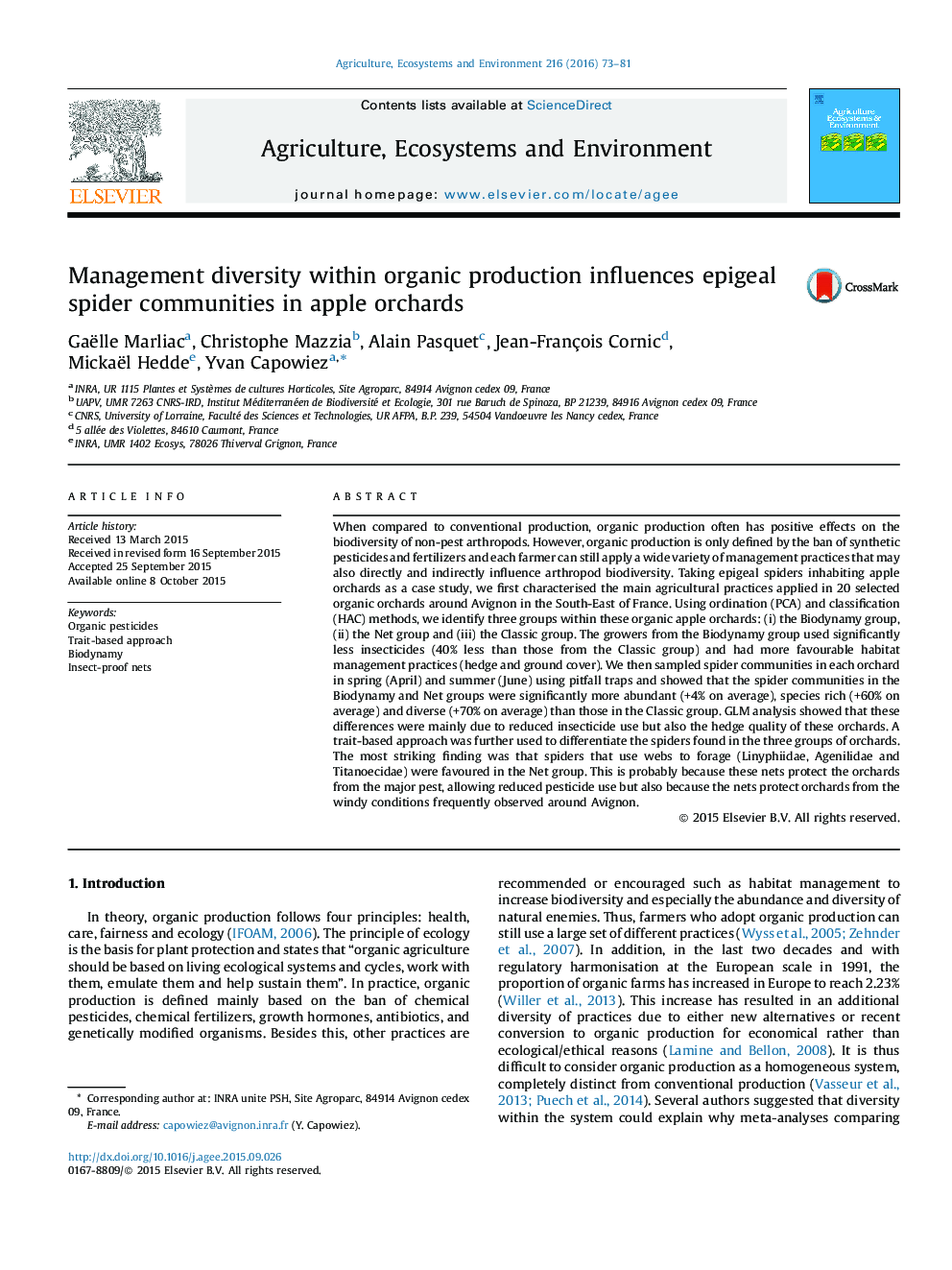| Article ID | Journal | Published Year | Pages | File Type |
|---|---|---|---|---|
| 2413627 | Agriculture, Ecosystems & Environment | 2016 | 9 Pages |
•The diversity of management practices within organic orchards was investigated.•Three orchard group were identified mainly defined by their pesticide use.•Epigeal spider communities were studied within these orchards.•The abundance and diversity of epigeal spiders was influenced by orchard group.•Trait-based approach revealed significant differences between orchard groups.
When compared to conventional production, organic production often has positive effects on the biodiversity of non-pest arthropods. However, organic production is only defined by the ban of synthetic pesticides and fertilizers and each farmer can still apply a wide variety of management practices that may also directly and indirectly influence arthropod biodiversity. Taking epigeal spiders inhabiting apple orchards as a case study, we first characterised the main agricultural practices applied in 20 selected organic orchards around Avignon in the South-East of France. Using ordination (PCA) and classification (HAC) methods, we identify three groups within these organic apple orchards: (i) the Biodynamy group, (ii) the Net group and (iii) the Classic group. The growers from the Biodynamy group used significantly less insecticides (40% less than those from the Classic group) and had more favourable habitat management practices (hedge and ground cover). We then sampled spider communities in each orchard in spring (April) and summer (June) using pitfall traps and showed that the spider communities in the Biodynamy and Net groups were significantly more abundant (+4% on average), species rich (+60% on average) and diverse (+70% on average) than those in the Classic group. GLM analysis showed that these differences were mainly due to reduced insecticide use but also the hedge quality of these orchards. A trait-based approach was further used to differentiate the spiders found in the three groups of orchards. The most striking finding was that spiders that use webs to forage (Linyphiidae, Agenilidae and Titanoecidae) were favoured in the Net group. This is probably because these nets protect the orchards from the major pest, allowing reduced pesticide use but also because the nets protect orchards from the windy conditions frequently observed around Avignon.
